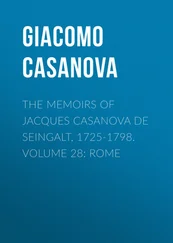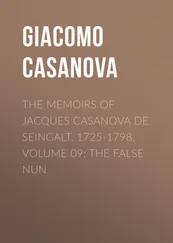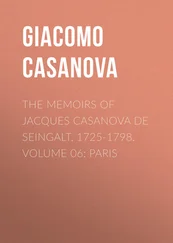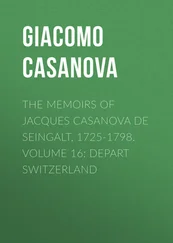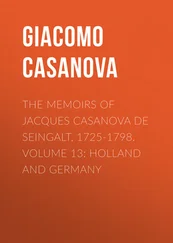What depraved tastes! some people will exclaim. Are you not ashamed to confess such inclinations without blushing! Dear critics, you make me laugh heartily. Thanks to my coarse tastes, I believe myself happier than other men, because I am convinced that they enhance my enjoyment. Happy are those who know how to obtain pleasures without injury to anyone; insane are those who fancy that the Almighty can enjoy the sufferings, the pains, the fasts and abstinences which they offer to Him as a sacrifice, and that His love is granted only to those who tax themselves so foolishly. God can only demand from His creatures the practice of virtues the seed of which He has sown in their soul, and all He has given unto us has been intended for our happiness; self-love, thirst for praise, emulation, strength, courage, and a power of which nothing can deprive us—the power of self-destruction, if, after due calculation, whether false or just, we unfortunately reckon death to be advantageous. This is the strongest proof of our moral freedom so much attacked by sophists. Yet this power of self-destruction is repugnant to nature, and has been rightly opposed by every religion.
A so-called free-thinker told me at one time that I could not consider myself a philosopher if I placed any faith in revelation. But when we accept it readily in physics, why should we reject it in religious matters? The form alone is the point in question. The spirit speaks to the spirit, and not to the ears. The principles of everything we are acquainted with must necessarily have been revealed to those from whom we have received them by the great, supreme principle, which contains them all. The bee erecting its hive, the swallow building its nest, the ant constructing its cave, and the spider warping its web, would never have done anything but for a previous and everlasting revelation. We must either believe that it is so, or admit that matter is endowed with thought. But as we dare not pay such a compliment to matter, let us stand by revelation.
The great philosopher, who having deeply studied nature, thought he had found the truth because he acknowledged nature as God, died too soon. Had he lived a little while longer, he would have gone much farther, and yet his journey would have been but a short one, for finding himself in his Author, he could not have denied Him: In Him we move and have our being. He would have found Him inscrutable, and thus would have ended his journey.
God, great principle of all minor principles, God, who is Himself without a principle, could not conceive Himself, if, in order to do it, He required to know His own principle.
Oh, blissful ignorance! Spinosa, the virtuous Spinosa, died before he could possess it. He would have died a learned man and with a right to the reward his virtue deserved, if he had only supposed his soul to be immortal!
It is not true that a wish for reward is unworthy of real virtue, and throws a blemish upon its purity. Such a pretension, on the contrary, helps to sustain virtue, man being himself too weak to consent to be virtuous only for his own 'gratification. I hold as a myth that Amphiaraus who preferred to be good than to seem good. In fact, I do not believe there is an honest man alive without some pretension, and here is mine.
I pretend to the friendship, to the esteem, to the gratitude of my readers. I claim their gratitude, if my Memoirs can give them instruction and pleasure; I claim their esteem if, rendering me justice, they find more good qualities in me than faults, and I claim their friendship as soon as they deem me worthy of it by the candour and the good faith with which I abandon myself to their judgment, without disguise and exactly as I am in reality. They will find that I have always had such sincere love for truth, that I have often begun by telling stories for the purpose of getting truth to enter the heads of those who could not appreciate its charms. They will not form a wrong opinion of me when they see one emptying the purse of my friends to satisfy my fancies, for those friends entertained idle schemes, and by giving them the hope of success I trusted to disappointment to cure them. I would deceive them to make them wiser, and I did not consider myself guilty, for I applied to my own enjoyment sums of money which would have been lost in the vain pursuit of possessions denied by nature; therefore I was not actuated by any avaricious rapacity. I might think myself guilty if I were rich now, but I have nothing. I have squandered everything; it is my comfort and my justification. The money was intended for extravagant follies, and by applying it to my own frolics I did not turn it into a very different, channel.
If I were deceived in my hope to please, I candidly confess I would regret it, but not sufficiently so to repent having written my Memoirs, for, after all, writing them has given me pleasure. Oh, cruel ennui! It must be by mistake that those who have invented the torments of hell have forgotten to ascribe thee the first place among them. Yet I am bound to own that I entertain a great fear of hisses; it is too natural a fear for me to boast of being insensible to them, and I cannot find any solace in the idea that, when these Memoirs are published, I shall be no more. I cannot think without a shudder of contracting any obligation towards death: I hate death; for, happy or miserable, life is the only blessing which man possesses, and those who do not love it are unworthy of it. If we prefer honour to life, it is because life is blighted by infamy; and if, in the alternative, man sometimes throws away his life, philosophy must remain silent.
Oh, death, cruel death! Fatal law which nature necessarily rejects because thy very office is to destroy nature! Cicero says that death frees us from all pains and sorrows, but this great philosopher books all the expense without taking the receipts into account. I do not recollect if, when he wrote his 'Tusculan Disputations', his own Tullia was dead. Death is a monster which turns away from the great theatre an attentive hearer before the end of the play which deeply interests him, and this is reason enough to hate it.
All my adventures are not to be found in these Memoirs; I have left out those which might have offended the persons who have played a sorry part therein. In spite of this reserve, my readers will perhaps often think me indiscreet, and I am sorry for it. Should I perchance become wiser before I give up the ghost, I might burn every one of these sheets, but now I have not courage enough to do it.
It may be that certain love scenes will be considered too explicit, but let no one blame me, unless it be for lack of skill, for I ought not to be scolded because, in my old age, I can find no other enjoyment but that which recollections of the past afford to me. After all, virtuous and prudish readers are at liberty to skip over any offensive pictures, and I think it my duty to give them this piece of advice; so much the worse for those who may not read my preface; it is no fault of mine if they do not, for everyone ought to know that a preface is to a book what the play-bill is to a comedy; both must be read.
My Memoirs are not written for young persons who, in order to avoid false steps and slippery roads, ought to spend their youth in blissful ignorance, but for those who, having thorough experience of life, are no longer exposed to temptation, and who, having but too often gone through the fire, are like salamanders, and can be scorched by it no more. True virtue is but a habit, and I have no hesitation in saying that the really virtuous are those persons who can practice virtue without the slightest trouble; such persons are always full of toleration, and it is to them that my Memoirs are addressed.
I have written in French, and not in Italian, because the French language is more universal than mine, and the purists, who may criticise in my style some Italian turns will be quite right, but only in case it should prevent them from understanding me clearly. The Greeks admired Theophrastus in spite of his Eresian style, and the Romans delighted in their Livy in spite of his Patavinity. Provided I amuse my readers, it seems to me that I can claim the same indulgence. After all, every Italian reads Algarotti with pleasure, although his works are full of French idioms.
Читать дальше


